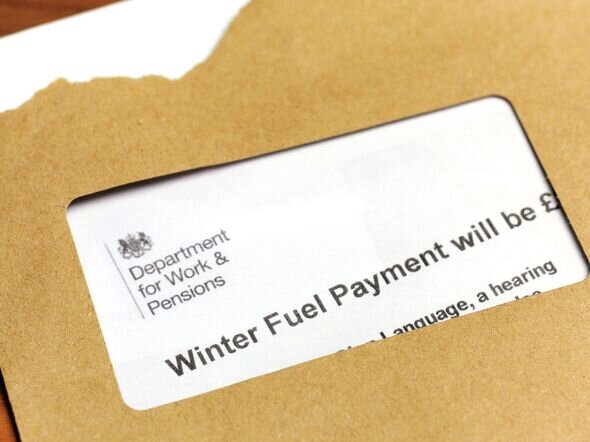Understanding Non-Payment of Wages

Non-payment of wages is a serious issue that affects many workers. Understanding your rights and knowing the right steps to take can help you get the wages you deserve.
Non-payment of wages occurs when an employer/client fails to provide the compensation owed to an worker for their work. This can be a result of financial difficulties, payroll errors, or intentional withholding by the employer/client. As a worker in the UK, it's essential to understand your rights and the steps you can take to address this issue.
Depending on the circumstances, non-payment might be a violation of employment contracts and even breach employment laws. Employees should be aware that there are legal safeguards and processes in place to ensure they receive their rightful pay.
One crucial point to note is that while the law protects employees from being unfairly denied their wages, employment law does not cover self-employed people in most cases because they are their own boss, though there are still options available to recover lost payment if you are self employed.
Collect Evidence of Non-Payment
To effectively handle non-payment of wages, collect all relevant evidence. This includes work contracts, pay slips/invoices, timesheets, and any communications with your employer or client regarding your pay. This comprehensive evidence is crucial for building a strong case and demonstrating your efforts to resolve the issue.


Address the Issue with Your Employer/Client
As an employee you should first communicate directly with your employer about the non-payment issue. They may not be aware of the problem. A polite but firm discussion can sometimes resolve the matter without further escalation. As a sole trader, Firstly, attempt to resolve the matter amicably by contacting the client and discussing the payment terms, as this can often lead to a quicker resolution without legal action.

If addressing the issue directly does not yield results, seek legal advice. Recent statistics show that 20% of employment disputes in the UK involve non-payment of wages, underlining the importance of professional guidance.Seek Legal Advice

Consider taking the matter to an employment tribunal. In 2022, 75% of tribunal cases relating to unpaid wages were ruled in favour of the employee, demonstrating the effectiveness of this route. (this route in not available to the self employed)Use Employment Tribunal

Steps to Protect Your Rights
Documenting your work hours and agreements is essential. Keep a detailed record of your time worked, including dates and times, alongside any correspondence with your employer/client.
If you are self employed, and your efforts resolve the issue by talking to your client prove unsuccessful, you have the option to pursue legal action by filing a claim through the Small Claims Court for debts under £10,000, or using alternative dispute resolution (ADR) services such as mediation or arbitration to reach an agreement.
What to Do if Wages Are Not Paid
Another important strategy involves understanding and utilising your employment contract. Ensure you have a clear understanding of the terms and conditions outlined in your contract, including payment schedules and procedures for address discrepancies.
If you are an employee and informal negotiations prove ineffective, escalating the issue to a legal representative can be beneficial. Legal professionals can provide the necessary support and representation to help you secure your rightful wages, as well as potentially covering other employment rights violations, such as unfair dismissal.

Tips for Handling Non-Payment of Wages for Employed and Self-Employed Individuals

For both employed and self-employed individuals, it's crucial to maintain detailed records of work done, hours worked, and communications with clients or employers. This documentation will be invaluable if you need to pursue legal action.Document Everything: Keep Detailed Records

Send a formal reminder or demand letter if payment is overdue. Clear, professional communication can often resolve payment issues quickly. If you're self-employed, consider outlining the consequences of non-payment, such as interest charges or legal action.Communicate Clearly: Follow Up Promptly

Consult a legal advisor or a professional organisation like ACAS for the employed, Citizens Advice, or the Federation of Small Businesses for self employed individuals. They can provide guidance on the best course of action, whether it's mediation, small claims court, or another legal remedy.Seek Professional Advice: Know Your Rights

Fun Fact About Wage Rights
Did you know that most wage disputes in the UK are resolved without going to court? This highlights the significance of proper communication and legal advice in addressing these issues.
Advice on Handling Non-Payment

Start by thoroughly reviewing your employment contract. It often contains clauses related to payment schedules and grievance procedures, providing a foundation for your case.
When dealing with non-payment, staying calm and documenting everything is vital. Maintain open lines of communication and seek legal advice if necessary. .

Your employment contract usually stipulates payment terms. Thoroughly review it to understand your contractual rights. Document any discrepancies you notice and bring them to your employer's attention.Review Your Contract

It may be beneficial for self employed individuals to seek advice from a professional organisation such as the Federation of Small Businesses (FSB) or consult with a legal advisor to ensure you take the appropriate steps to recover your owed wages effectively.Seek Advice From Professionals
Summary
Handling non-payment of wages involves understanding your rights, collecting evidence, and communicating directly with your employer/client. If these efforts do not work, seeking legal advice and considering an employment tribunal are effective next steps. Future protections will likely become stricter, aided by technological advancements. Utilising resources like the Pie Tax App and Expert tax assistants available on the Pie app provides additional layers of support. Ultimately, ensuring you are informed and prepared is key to protecting your rights.










